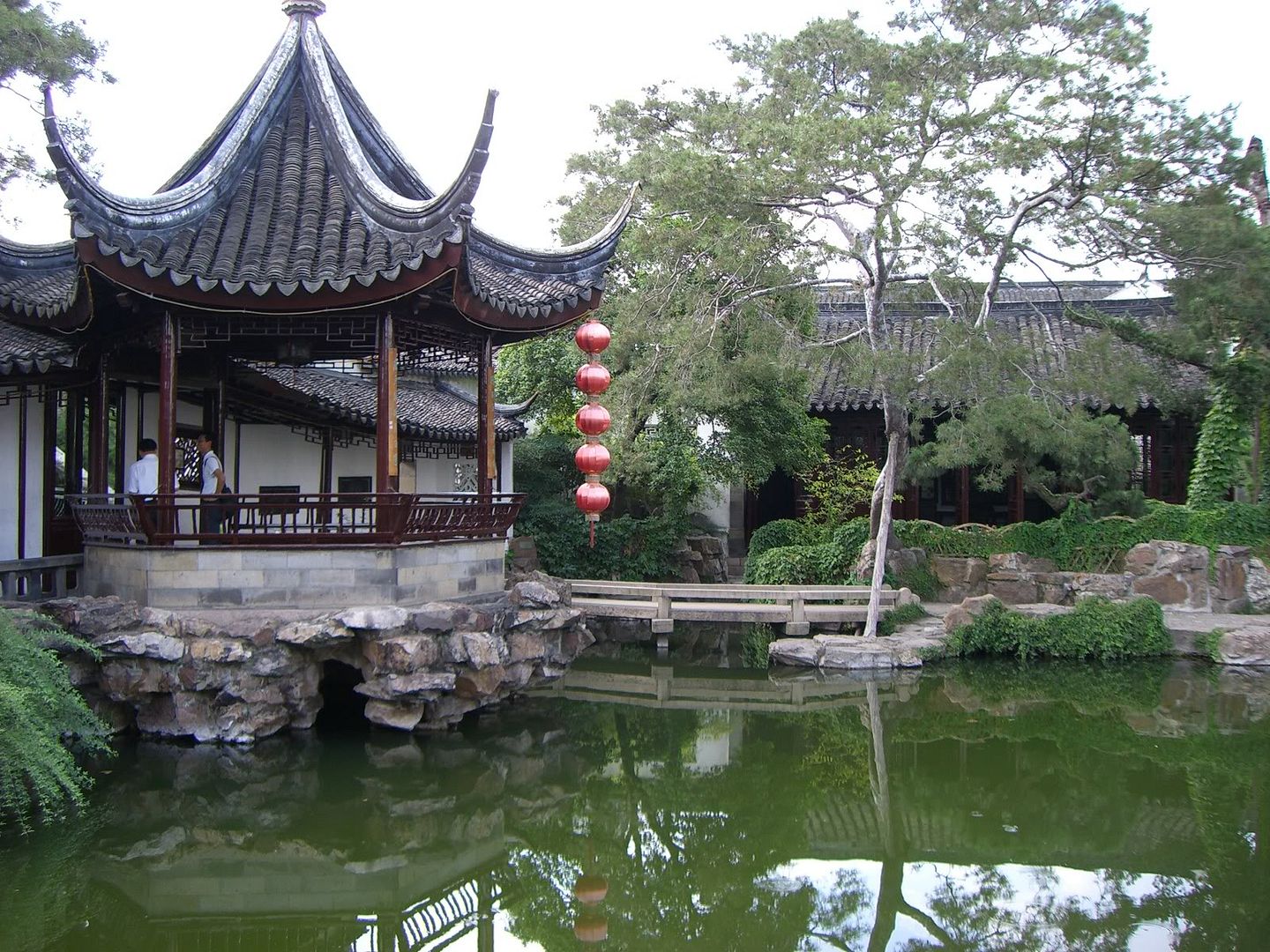
I've finally gotten myself out of the Stone Age and bought a digital camera. It's so great, I don't know why I kept using disposable cameras for so long!
The great thing about Shanghai is that there's loads of interesting towns and cities nearby. Trains and buses that will go to most places at very low cost. My hard seat ticket to Suzhou was less than $2 USD!
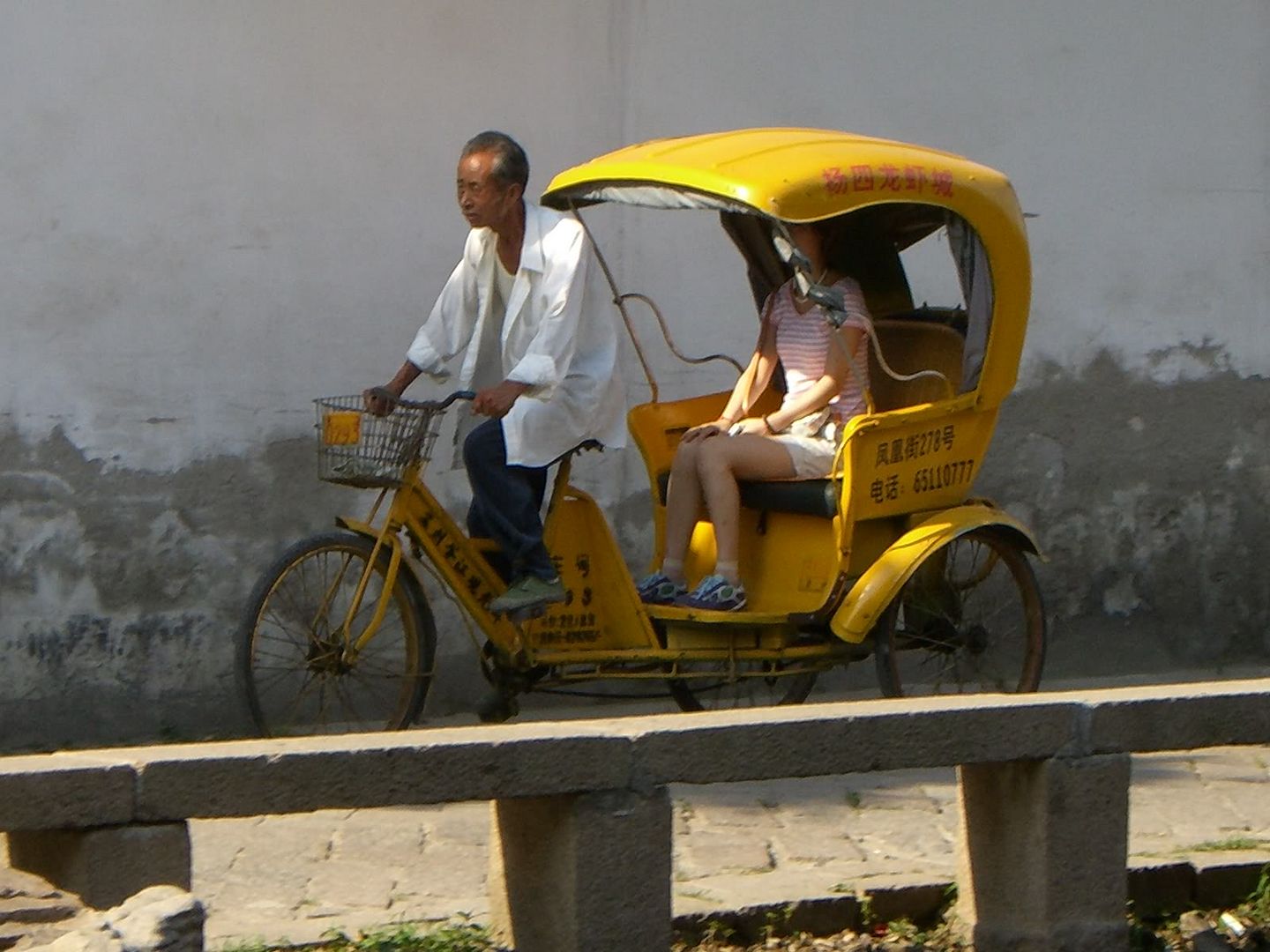
There are four classes of comfort in Chinese trains:
Soft Sleeper
Hard Sleeper
Soft Seat
Hard Seat
The names are self-explanatory. Soft sleeper cabins are hotel-quality and cost about as much as a plane ticket. Hard seat cabins on long-distance trains can be a nightmare: crowded with dirty migrant workers eating, smoking, and playing cards, with no room to sit down.
Buying a train ticket can be a test of endurance. Long lines, noise, and ticket sellers trained in the Communist style of customer service: "Better a late train that's Communist than a train on time that's Capitalist."
The guidebooks recommend bypassing train stations altogether and buying tickets through hotels and hostels instead. Most of them have an in-house travel agency with English-speaking staff. There's a small service charge, but it's worth it for the convenience. Sometimes they have special contacts that can score tickets even during high season.
In addition, there are advanced-purchase offices that sell train tickets. This is the best option, since they're more conveniently located than the main train station, and have a lower service charge than a hotel. No English though, so bringing along a Chinese friend is a must. But sometimes these ticket offices are so well-hidden that even locals don't know about them! The one closest to my apartment is buried in the back of a tobacco shop. I used to wonder why I saw long lines there all the time!
It's also a good idea to buy an onward ticket or return ticket at the same time that you buy your initial ticket. Thanks to overpopulation, tickets get sold out fast on popular routes. That goes tenfold for Chinese holidays. The government only allows three 1-week vacations during the year: National Day (October), Spring Festival a.k.a. Chinese New Year (January or February), and Labor Day (May). This is the only time Chinese people can travel. They often to choose to go back to their hometown or travel to famous tourist sites. They don't have 2-week vacations they can take whenever, like America. So in high seasons, the tourist infrastructure is pressed to the limit.
Scalpers ("piao fanzi") make a fortune by buying up as many train tickets as they can for the holidays and reselling them at ridiculously high prices. They also do this for sports events and pop music concerts too. The most heartless scalpers buy up the wait-in-line numbers at hospitals and sell them to patients needing emergency care!
Since this was my first-ever trip into another part of China, I chose Suzhou ("su joe"). It's only an hour away from Shanghai by train. One of the most famous Chinese tourist blurbs goes, "In heaven, there is paradise. On Earth, there is Suzhou and Hangzhou." Suzhou if famous for its gardens and canals. Hangzhou is famous for West Lake, a huge lake that has cool old architecture.
When I polled my foreign friends and students, they unanimously recommended Hangzhou over Suzhou. The West Lake was big and had more stuff to see. They all thought Suzhou was too small, too boring, and not that great. While I thought it wasn't that bad, I definitely wouldn't stay there longer than a day.
I did like that the sky was clear and blue. The buildings didn't tower over me and block out the sky like they do in Shanghai. A lot of them had more traditional-looking roofs.
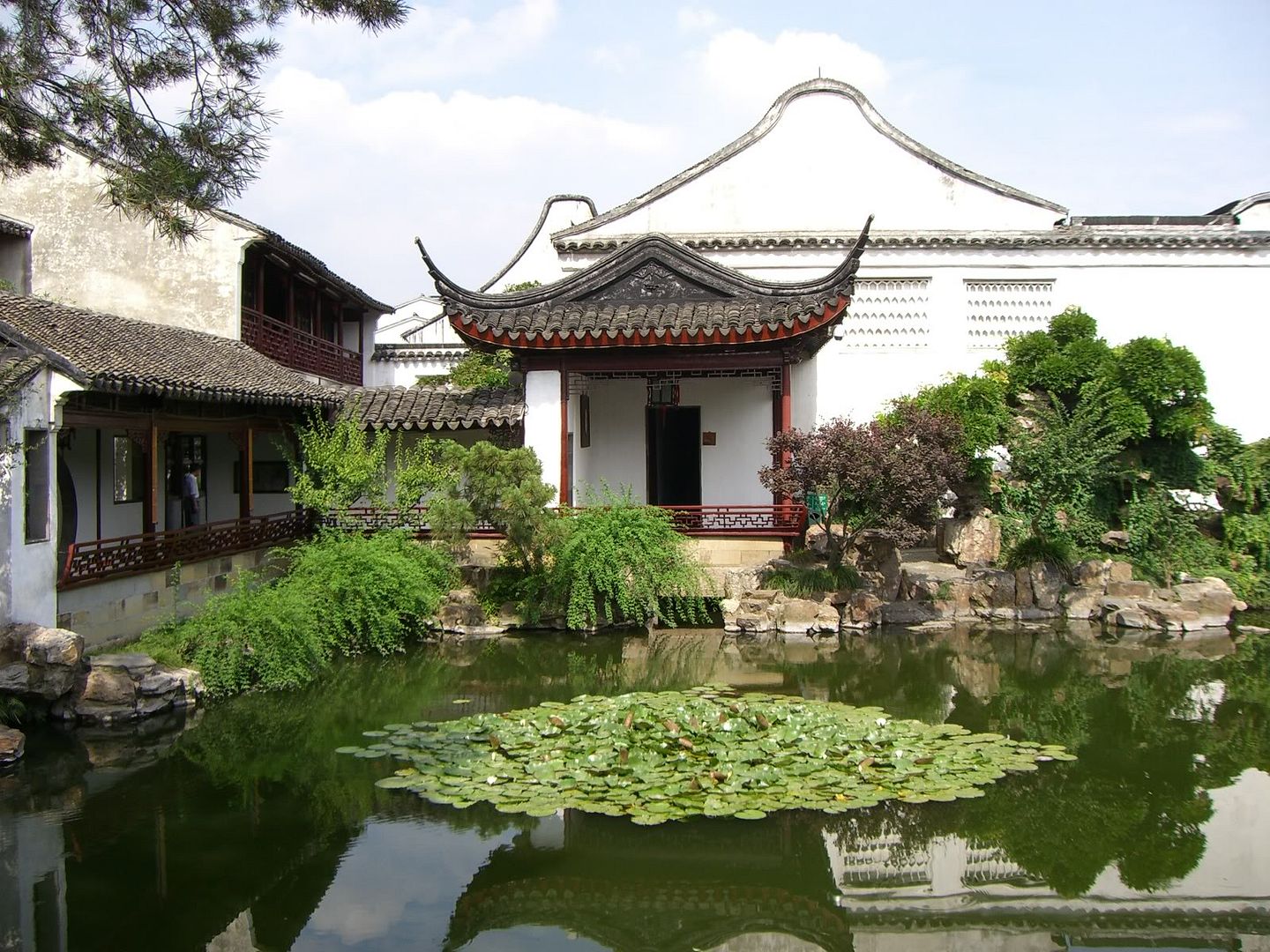
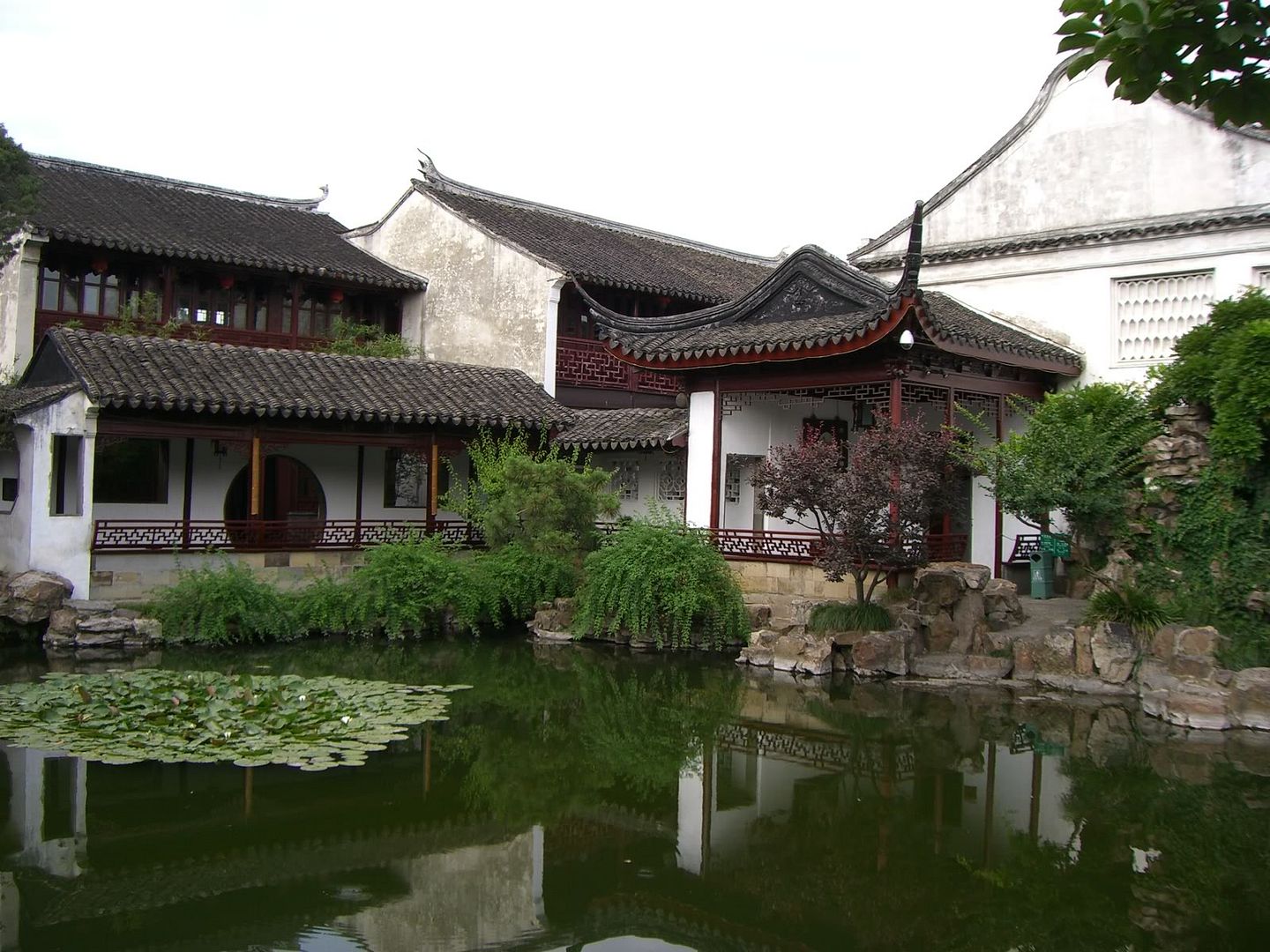
While I was wandering through the Garden of the Master of the Nets, I met Jessie, a girl from Beijing. When I told her I'd come to China without being able to speak Chinese, she gasped.
"You are so great!" she said. "You must be very brave to come to a country where you can't speak the language."
I brightened at that. Whenever I make a radical decision, i.e. to backpack through Europe, to teach English in China, I am never sure whether I'm being incredibly brave or incredibly stupid. The only way to find out is go for it.
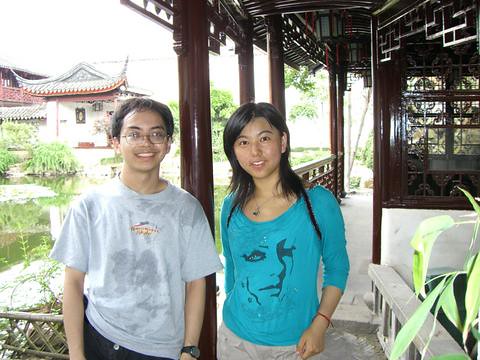




1 comment:
eva air ticket
giá vé máy bay đi mỹ hãng eva
korean airline vietnam
vé máy bay đi mỹ rẻ
Vé máy bay đi canada
Nhung Chuyen Di Cuoc Doi
Ngẫu Hứng Du Lịch
Kien Thuc Du Lich
Post a Comment